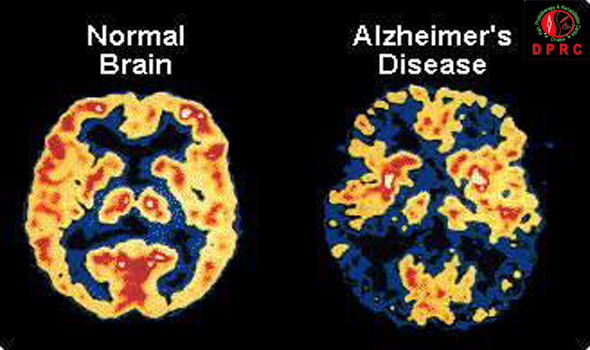• Increasing age
• A family history of the condition
• Previous severe head injuries
• Lifestyle factors and conditions associated with cardiovascular disease
Signs and symptoms of Alzheimer’s disease:-
Alzheimer’s disease is a progressive condition, which means the symptoms develop gradually and become more severe over the course of several years. It affects multiple brain functions.The first sign of Alzheimer’s disease is usually minor memory problems. For example, this could be forgetting about recent conversations or events, and forgetting the names of places and objects.
As the condition develops, memory problems become more severe and further symptoms can develop, such as:
• Confusion, disorientation and getting lost in familiar places
• Difficulty planning or making decisions
• Problems with speech and language
• Problems moving around without assistance or performing self-care tasks
• Personality changes, such as becoming aggressive, demanding and suspicious of others
• Hallucinations (seeing or hearing things that aren’t there) and delusions (believing things that are untrue)
• Low mood or anxiety
Diagnosis:-
As the symptoms of Alzheimer’s disease progress slowly, it can be difficult to recognise that there’s a problem. Many people feel that memory problems are simply a part of getting older. However, a timely diagnosis of Alzheimer’s disease can give you the best chance to prepare and plan for the future, as well as receive any treatment or support that may help.
• Discuss the process of making the diagnosis
• Organise testing
• Create a treatment plan
There’s no cure for Alzheimer’s disease, but medication is available that can help relieve some of the symptoms and slow down the progression of the condition in some people.Various other types of support are also available to help people with Alzheimer’s live as independently as possible, such as making changes to your home environment so it’s easier to move around and remember daily tasks.
Psychological treatments such as cognitive stimulation therapy may also be offered to help support your memory, problem solving skills and language ability.

